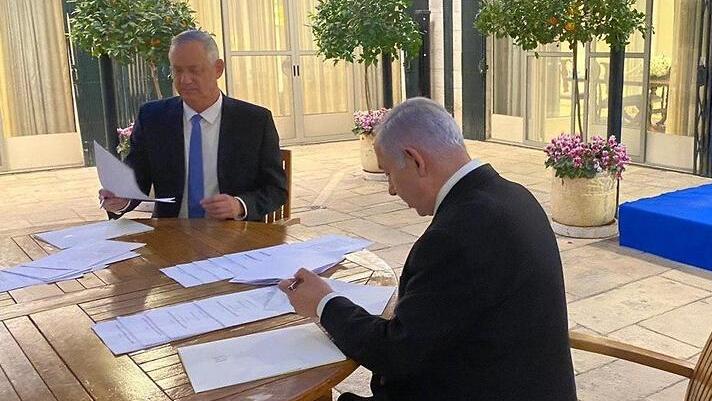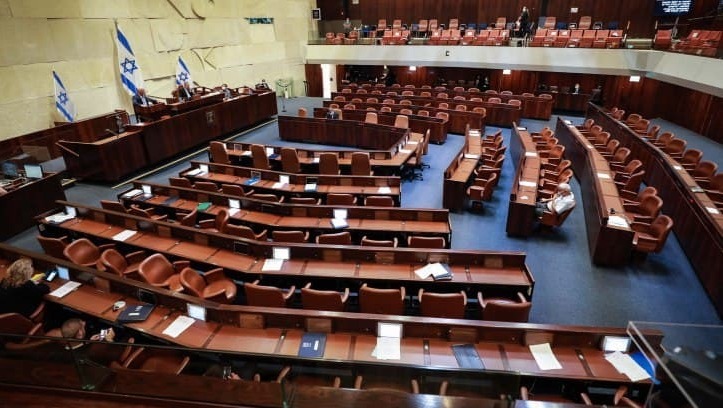Getting your Trinity Audio player ready...
A last-ditch effort to prevent the Knesset from dissolving automatically - and sending Israel into its fourth election in two years - failed in the early hours of Tuesday when lawmakers rejected a bill that would extend the timeline allotted the government to pass a budget.
Proposed by Prime Minister Benjamin Netanyahu’s Likud and Defense Minister Benny Gantz’s Blue & White, the bill would have extended negotiations over the state budget to December 31 - but a vote of 49 against and 47 for the bill toppled it in the plenum.
If no surprise agreement is reached by midnight Tuesday and the country remains without a budget or a plan to extend the deadline, Israel by law heads to elections.
Blue & White said ahead of the vote that it would not be voting on the bill in order to give Likud the chance to come up with an 11th hour proposal. But three of its lawmakers - Asaf Zamir, Miki Haimovich and Ram Shefa - voted against the bill.
The Likud erupted when its MK Michal Shir voted against the bill and announced after that she was quitting the Knesset to join former party colleague Gideon Sa'ar's breakaway party, which recent polls show is expected to perform well in potential elections against the Likud.
Another Likud lawmaker Sharren Haskel was absent from the vote and did not answer calls from coalition leaders.
Passing a bi-annual state budget for 2020 and 2021 is part of the coalition agreement between the parties, yet has been a contentious issue between Blue & White and the Likud.
Under the terms of the coalition agreement, a failure to pass the state budget is the only way Netanyahu can remain in power if the government collapses and will not have to cede his seat to Gantz, the alternate prime minister.
Even as that power-sharing pact was being inked, many analysts argued that Netanyahu, on trial for repeated alleged corruption which he denies, would not relinquish his powerful post, and Likud has since demanded to pass the budgets separately while Blue & White insisted Netanyahu stick to their deal.
After the failed vote, a furious coalition chairman Likud MK Miki Zohar slammed Shir and Haskel for their absence.
"Shir voted against the faction's position and Haskel refused to be present for the vote, in contravention of the Likud position, [as we] did everything possible to prevent the elections. It is time to put an end to those who exploit the Likud movement and are working against it," he said.
3 View gallery


Benny Gantz and Benjamin Netanyahu signing the coalition agreement in April
(Photo: Archive)
Israel has so far this year managed its finances on the basis of a pro-rated version of the 2019 budget.
The current fiscal deadlock has plunged Israel into more economic uncertainty at the end of a year when a coronavirus-induced slump is expected to shrink gross domestic product by 4.5% with the jobless rate standing at 12.1%.
Analysts had seen Netanyahu pushing for an election in May or June next year, after the coronavirus crisis was expected to ease and the economy to begin to recover.
A March vote would be riskier for Israel's longest serving leader, who has been facing a wave of street protests against his alleged corruption and his handling of the COVID-19 pandemic.
Though polls show Netanyahu's party emerging as the largest faction in the Knesset after the next elections, surveys also predict a strong showing for a bloc of factions from across the political spectrum seeking to unseat him.
i24NEWS contributed to this article



